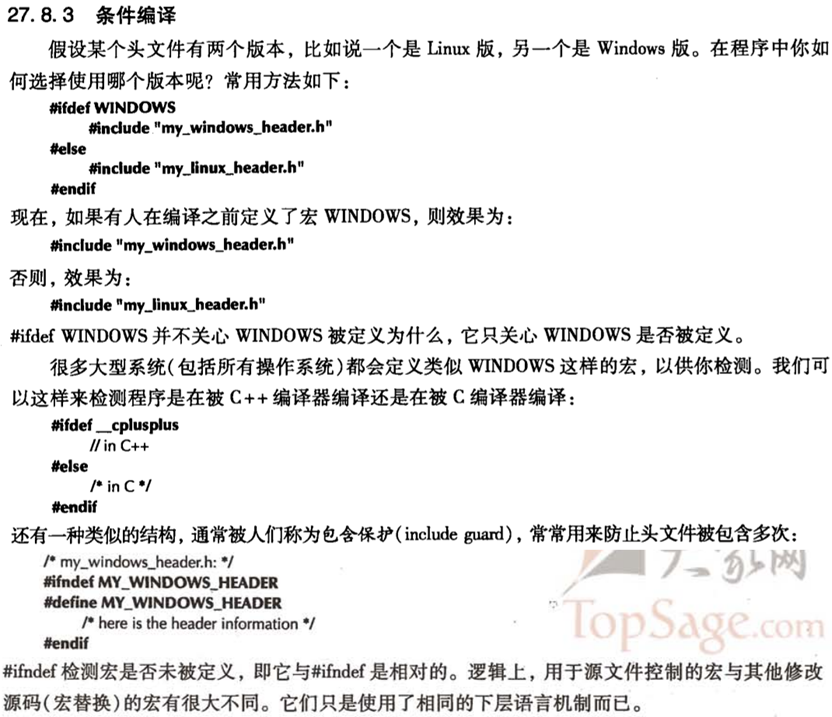读书笔记之:C++程序设计原理与实践(ch27:C与C++的区别)[+++]
第27章 C语言
1. C与C++


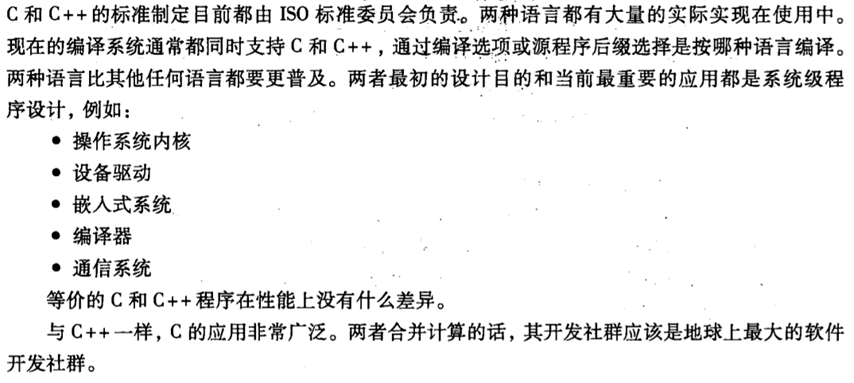
2. C与C++的兼容性

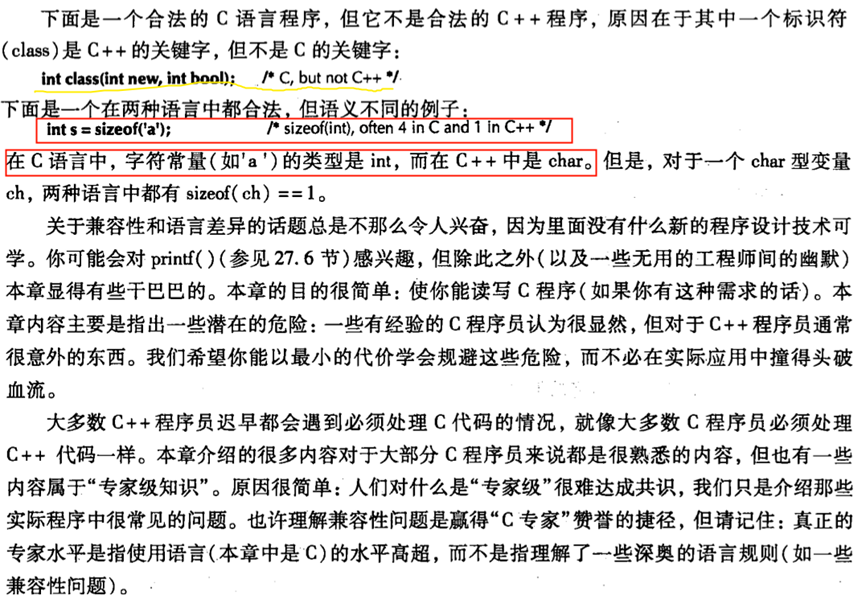
3. C不支持的C++特性
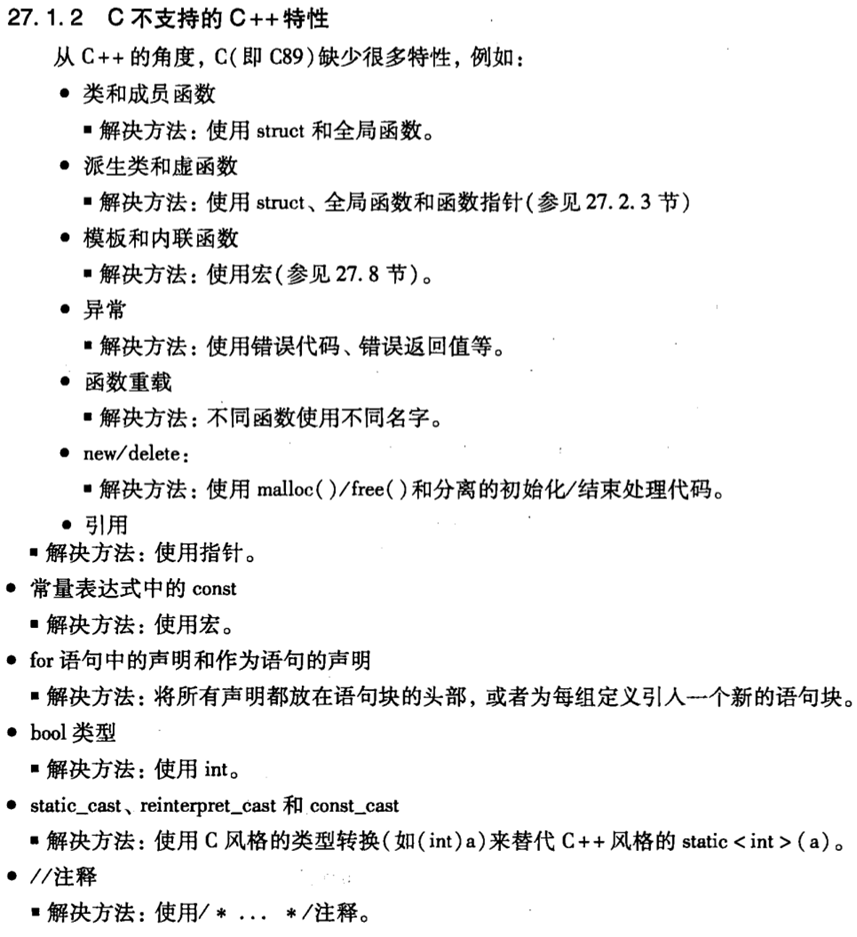
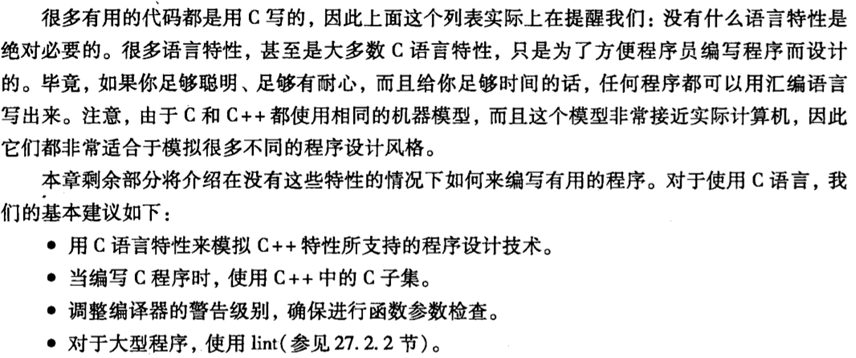
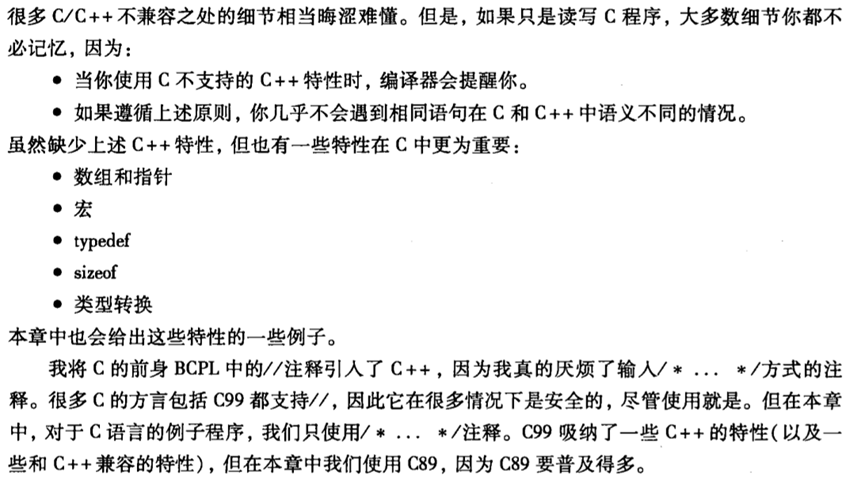
4. C中函数与C++的区别:不支持函数重载
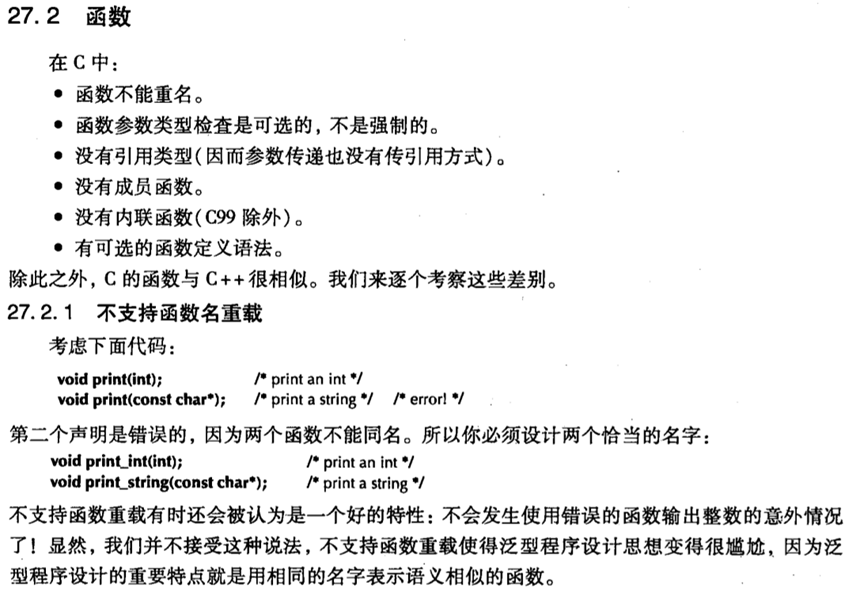
5. 函数参数检查
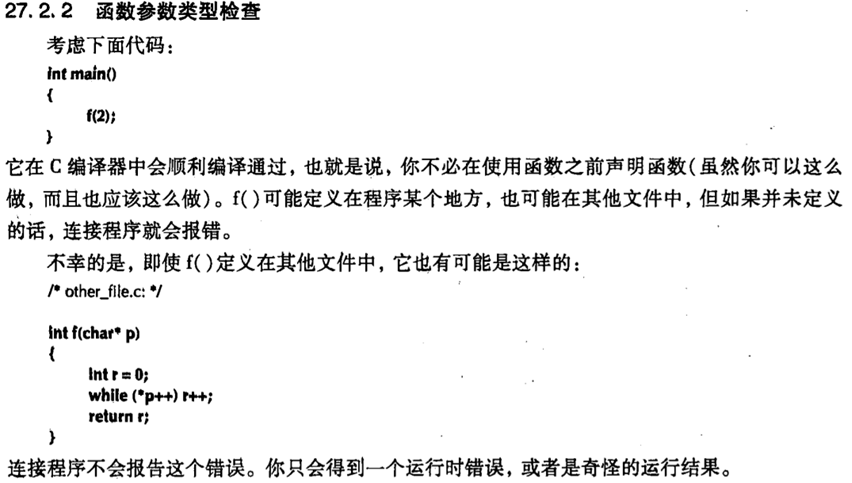
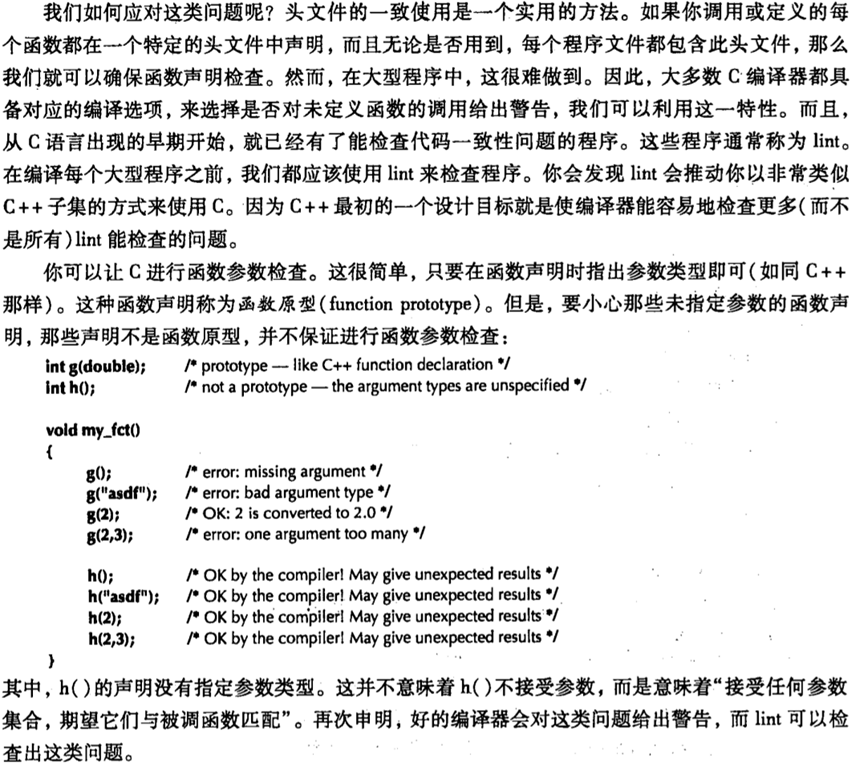
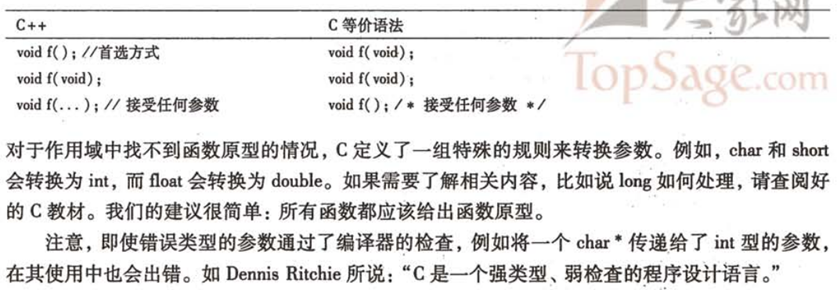
6. 函数定义
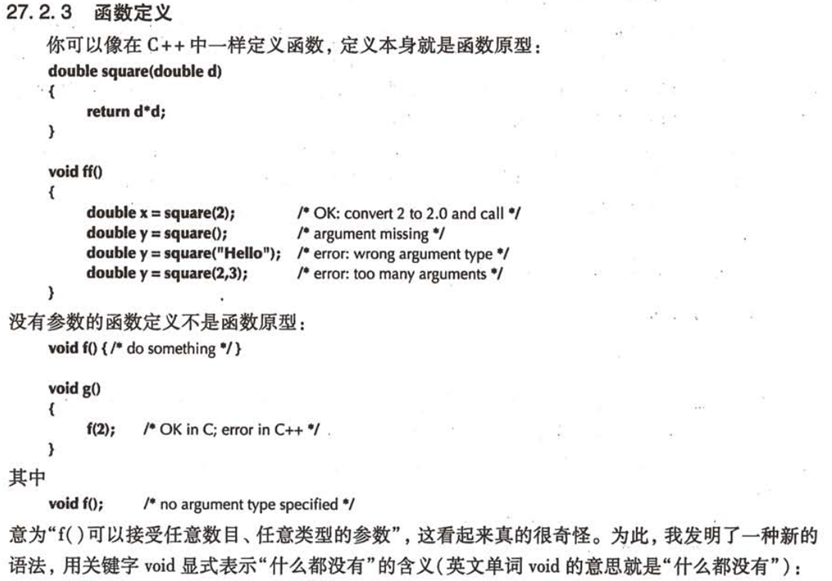
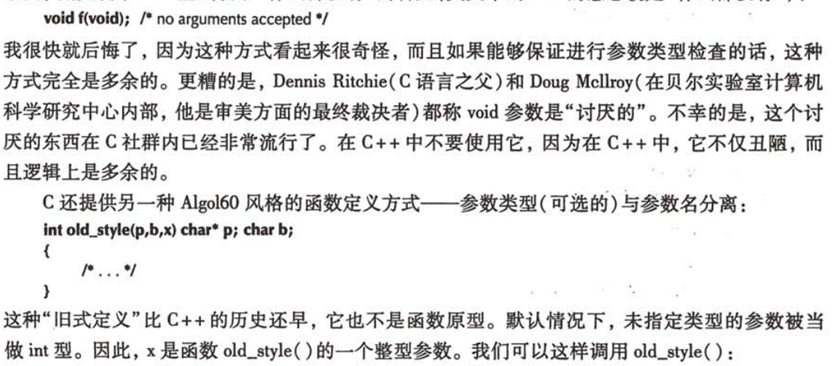
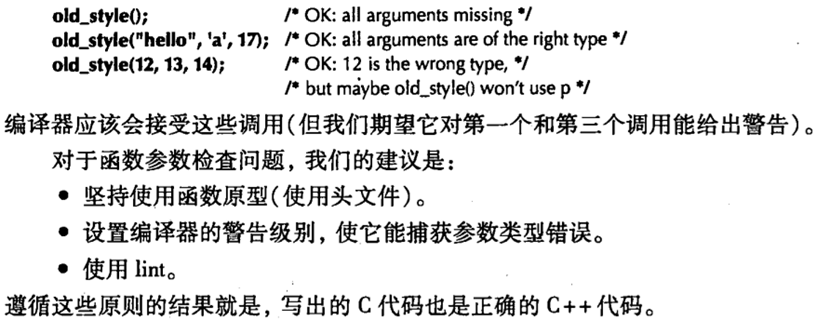
7. 在C++中调用C和在C中调用C++


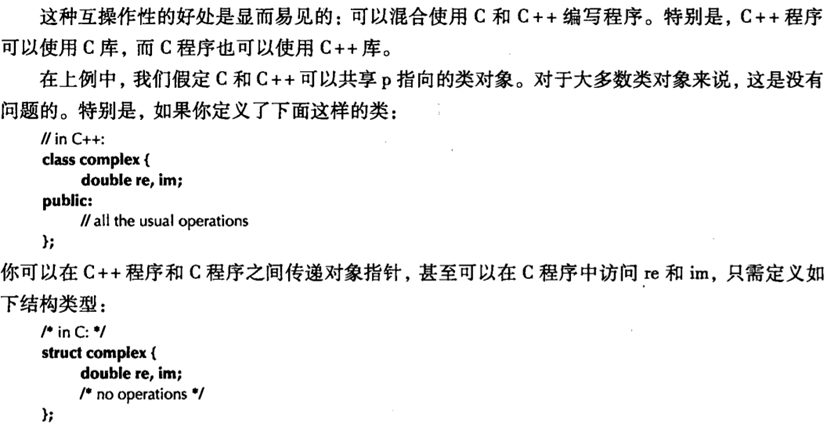

8. 函数指针
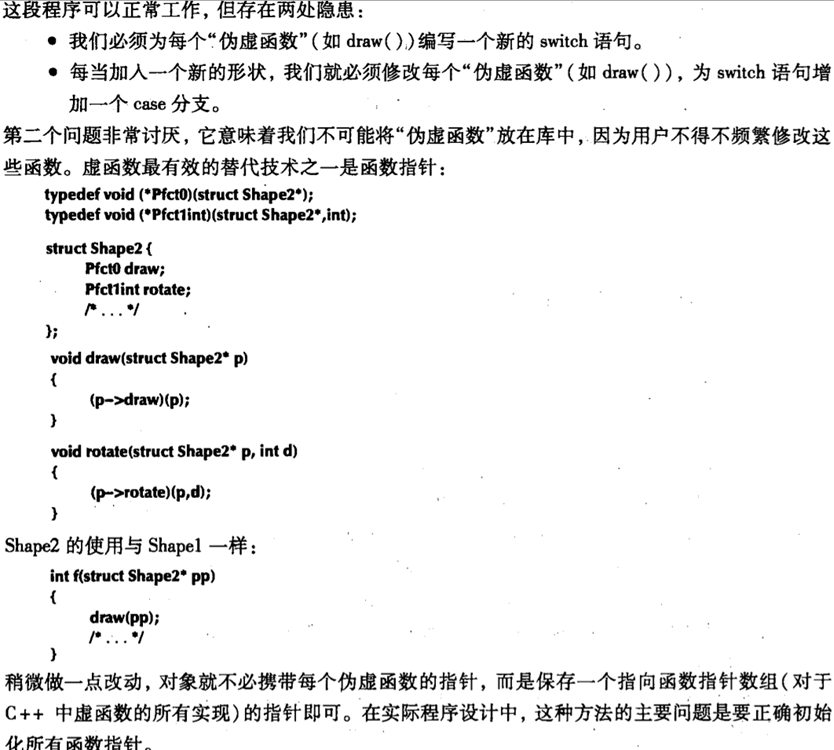
 View Code
View Code /*
//
// This is example code from Chapter 27.2.4 "Pointers to functions" of
// "Programming -- Principles and Practice Using C++" by Bjarne Stroustrup
//
*/
/*----------------------------------------------------------------------------*/
struct Shape1 {
enum Kind { circle, rectangle } kind;
/* ... */
};
/*----------------------------------------------------------------------------*/
void draw(struct Shape1* p)
{
switch (p->kind) {
case circle:
/* draw as circle */
break;
case rectangle:
/* draw as rectangle */
break;
}
}
/*----------------------------------------------------------------------------*/
int f(struct Shape1* pp)
{
draw(pp);
/* ... */
}
/*----------------------------------------------------------------------------*/
typedef void (*Pfct0)(struct Shape2*);
typedef void (*Pfct1int)(struct Shape2*,int);
/*----------------------------------------------------------------------------*/
struct Shape2 {
Pfct0 draw;
Pfct1int rotate;
/* ... */
};
/*----------------------------------------------------------------------------*/
void draw1(struct Shape2* p)
{
(p->draw)(p);
}
/*----------------------------------------------------------------------------*/
void rotate(struct Shape2* p)
{
(p->rotate)(p,90);
}
/*----------------------------------------------------------------------------*/
int f1(struct Shape * pp)
{
draw(pp);
/* ... */
}
/*----------------------------------------------------------------------------*/
//
// This is example code from Chapter 27.2.4 "Pointers to functions" of
// "Programming -- Principles and Practice Using C++" by Bjarne Stroustrup
//
*/
/*----------------------------------------------------------------------------*/
struct Shape1 {
enum Kind { circle, rectangle } kind;
/* ... */
};
/*----------------------------------------------------------------------------*/
void draw(struct Shape1* p)
{
switch (p->kind) {
case circle:
/* draw as circle */
break;
case rectangle:
/* draw as rectangle */
break;
}
}
/*----------------------------------------------------------------------------*/
int f(struct Shape1* pp)
{
draw(pp);
/* ... */
}
/*----------------------------------------------------------------------------*/
typedef void (*Pfct0)(struct Shape2*);
typedef void (*Pfct1int)(struct Shape2*,int);
/*----------------------------------------------------------------------------*/
struct Shape2 {
Pfct0 draw;
Pfct1int rotate;
/* ... */
};
/*----------------------------------------------------------------------------*/
void draw1(struct Shape2* p)
{
(p->draw)(p);
}
/*----------------------------------------------------------------------------*/
void rotate(struct Shape2* p)
{
(p->rotate)(p,90);
}
/*----------------------------------------------------------------------------*/
int f1(struct Shape * pp)
{
draw(pp);
/* ... */
}
/*----------------------------------------------------------------------------*/
9. C/C++结构签名字空间的差别

10. C/C++在关键字上的差别

11. C/C++在变量定义上的区别
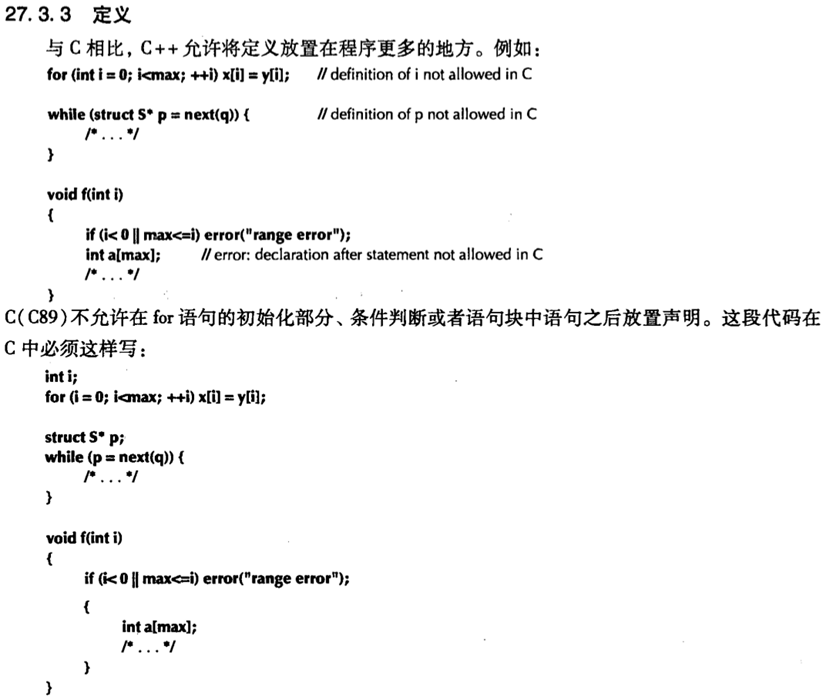

12. C风格类型转换
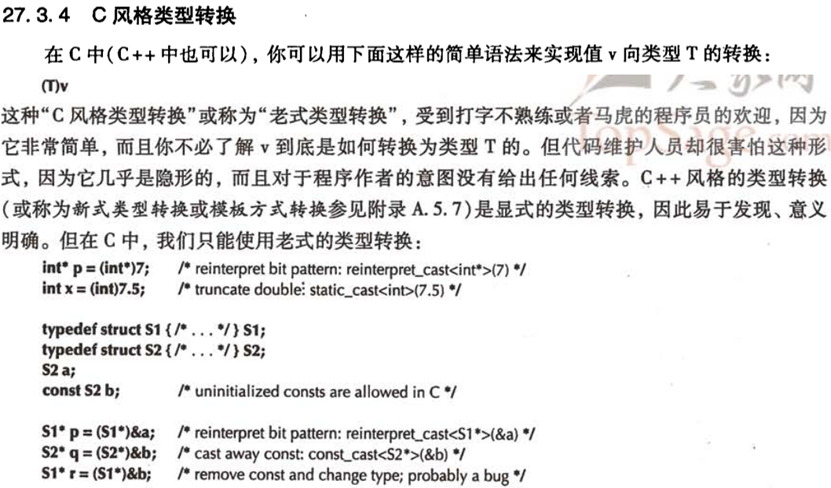

13. void* 转换
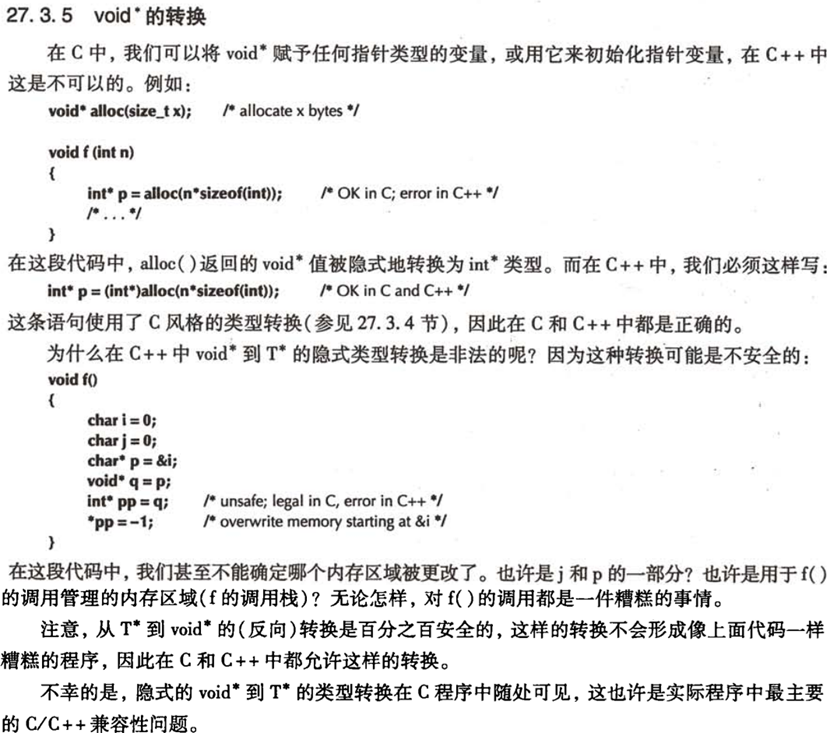
14. 枚举

15. 名字空间

16. 动态内存分配
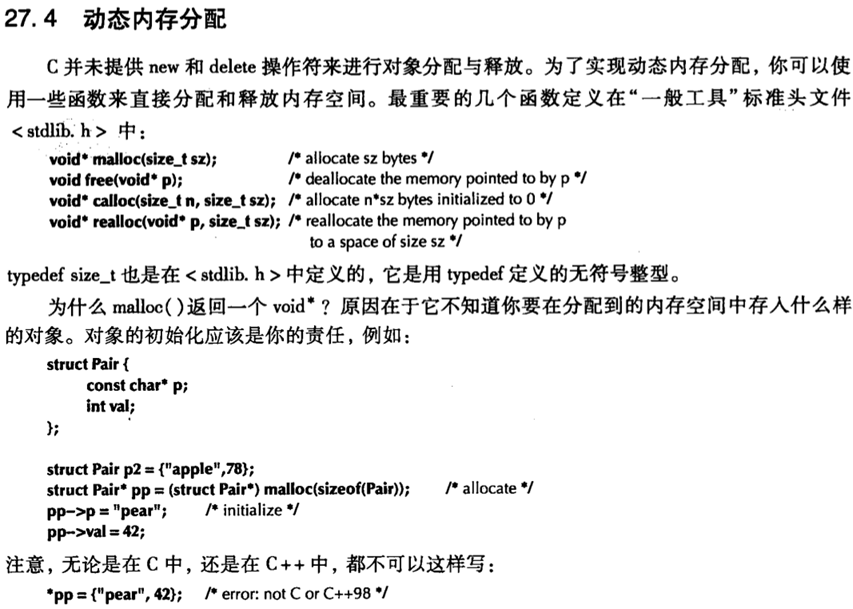
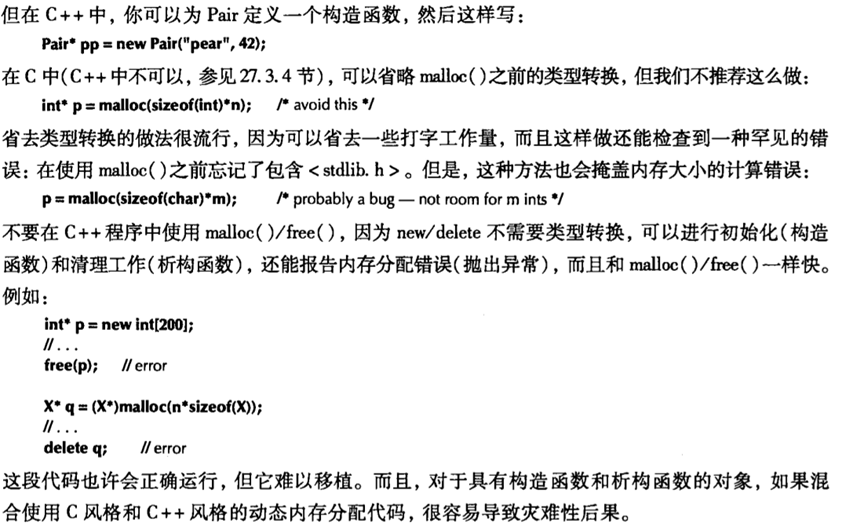
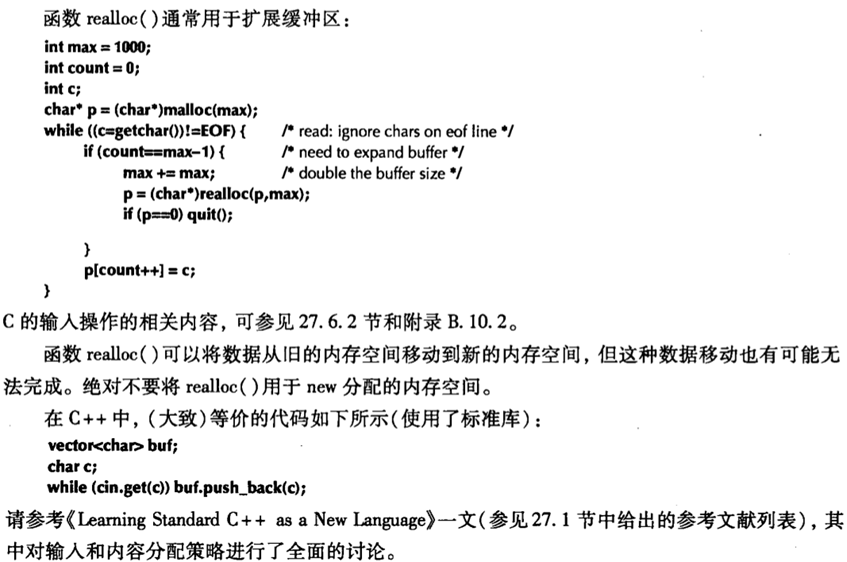
17. C风格字符串
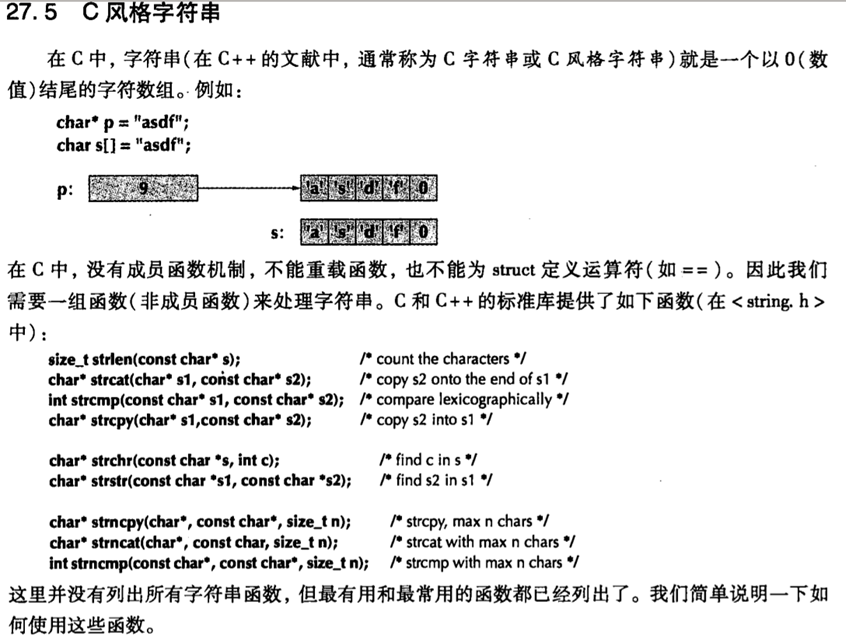

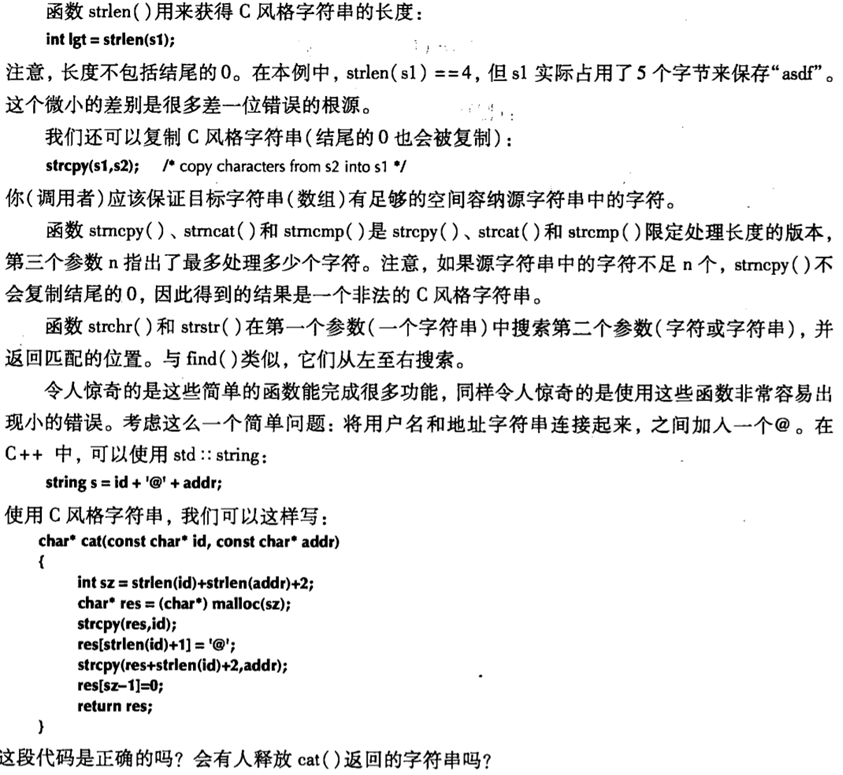
18. C风格字符串与const
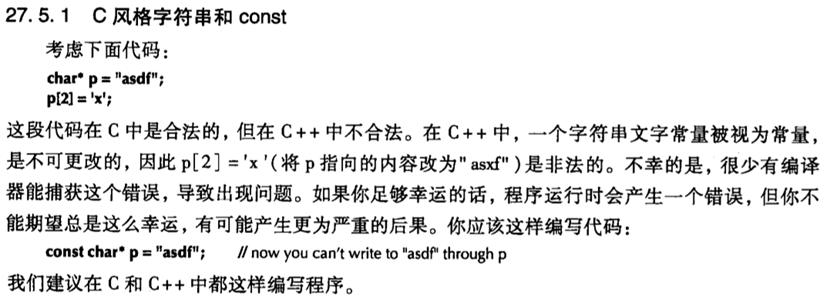

19. 字节操作
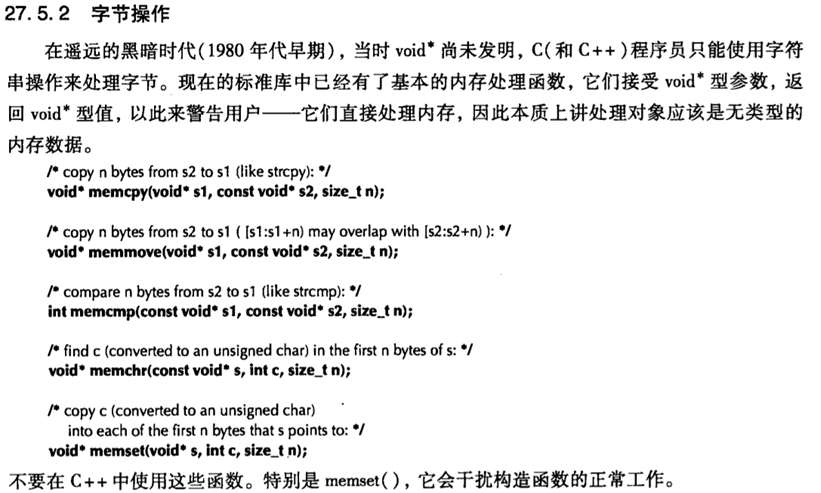
20. 实例:strcpy
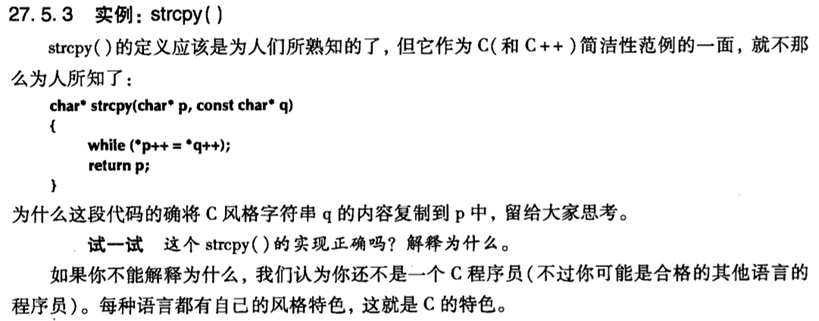
21. 风格问题

22. 输入输出

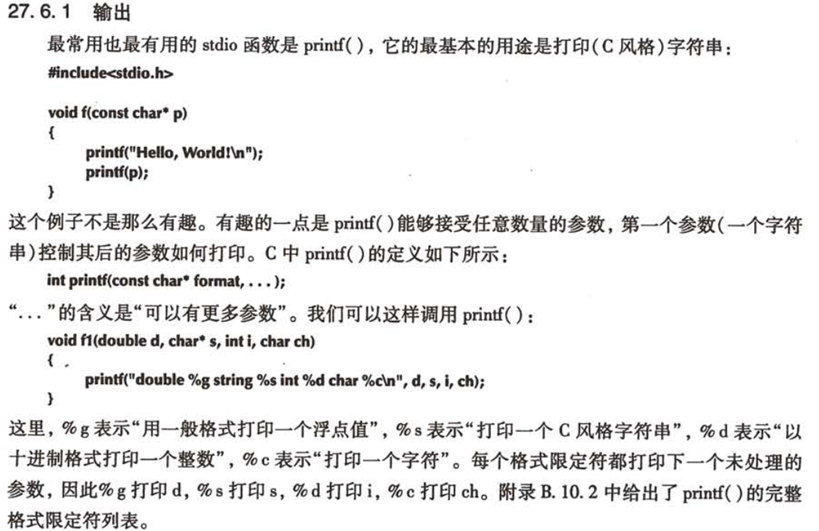




23. 文件

24. 常量与宏


25. 宏

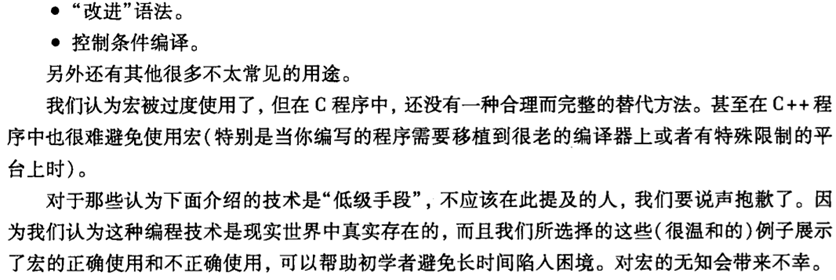
26. 类函数的宏

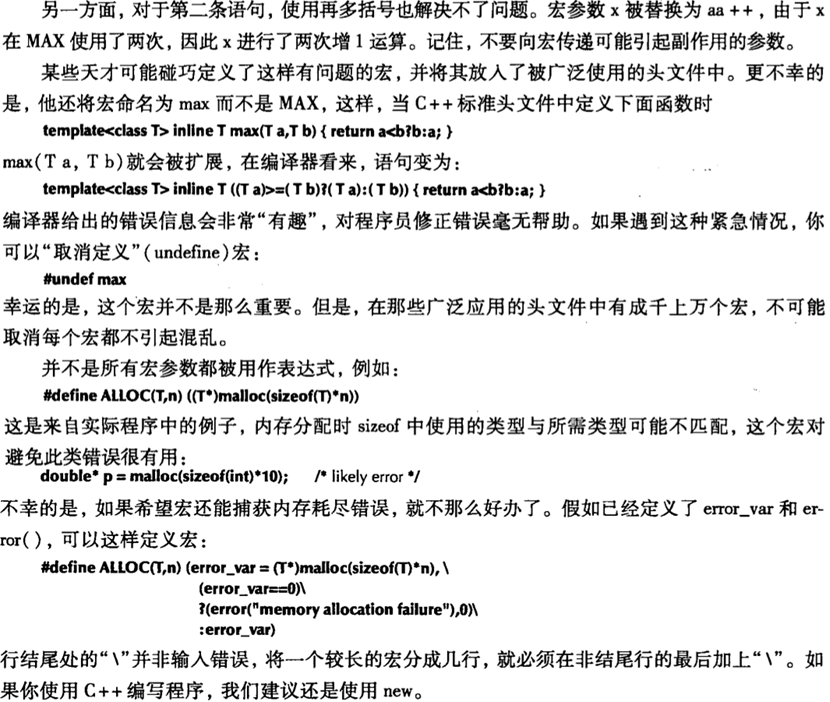
27. 不要使用语法宏
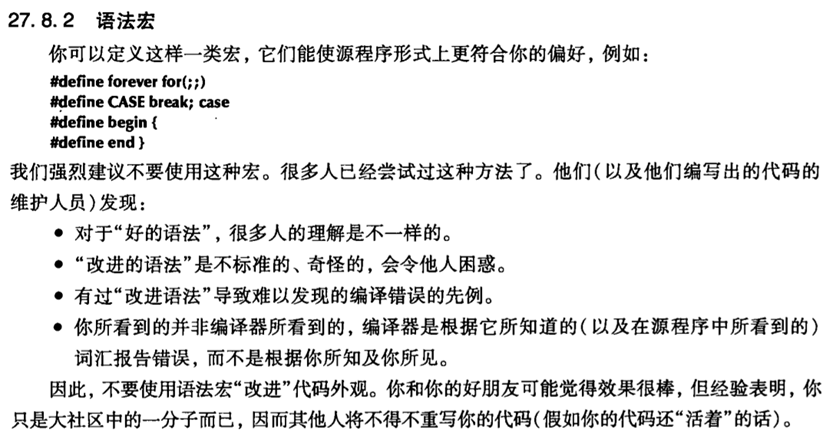
28. 条件编译
